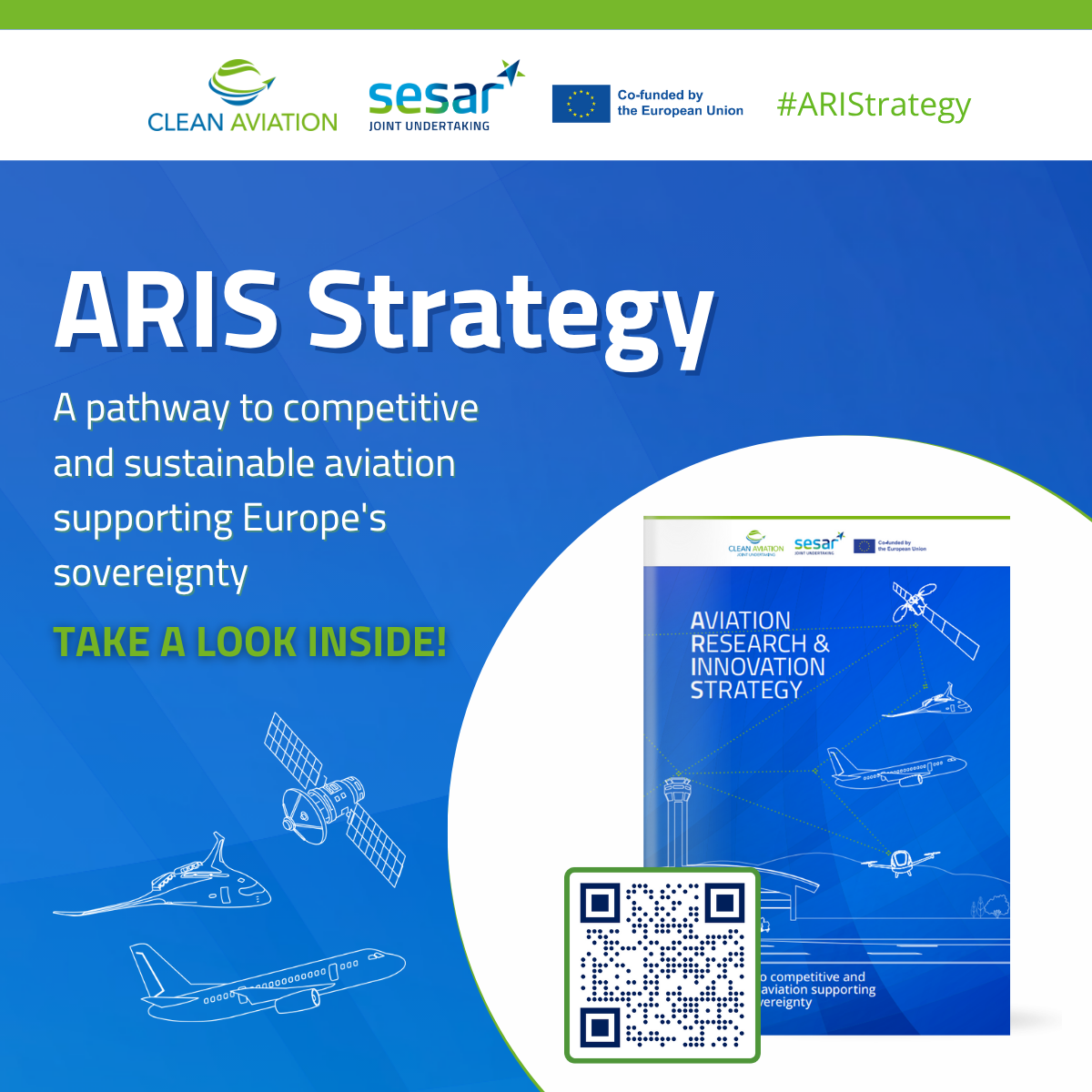The Aviation Research & Innovation Strategy (ARIS) was handed over to the European Commissioner for Sustainable Transport and Tourism, Apostolos Tzitzikostas, during a high-level event at the Paris Air Show on 16 June 2025.

[Source: Clean Aviation]
About ARIS
ARIS outlines a joint vision of the European stakeholders in the aviation sector, i.e., research institutes, universities, startups, and big players in the industry, for securing the long-term competitiveness of the European aviation sector, maintaining its global leadership, and establishing aviation as a flagship European industry and a leader for sustainability. EASN representatives had participated to represent academia in this process and hence to stress the significance of upstream research as part of the ARIS agenda.
ARIS key messages
- Europe’s aviation leadership is strong but not guaranteed – Global leadership in aviation has been achieved through sustained R&I investment, but maintaining this position requires renewed effort, especially amid global competition and geopolitical shifts.
- Aviation is vital to Europe’s economy and sovereignty – The sector supports millions of jobs, contributes over €1 trillion to economic activity, and is key to the EU’s single market, innovation capacity, and global influence.
- Urgent investment in R&I is needed to stay competitive and meet climate goals – Without a major boost in R&I funding, Europe risks losing its edge to other global powers; with investment, it can lead on decarbonisation and technology.
- Three priority areas for R&I investment – To secure the future, investment must target: (1) Aircraft technologies for zero emissions, (2) Air traffic management and the Digital European Sky, and (3) Industrial enablers like manufacturing, digitalisation, and skills.
- Collaboration and a coordinated EU strategy are essential – A common European aviation R&I strategy, with collaboration and EU-wide deployment coordination, is key to maximising impact and securing Europe’s place as a global leader in aviation.
